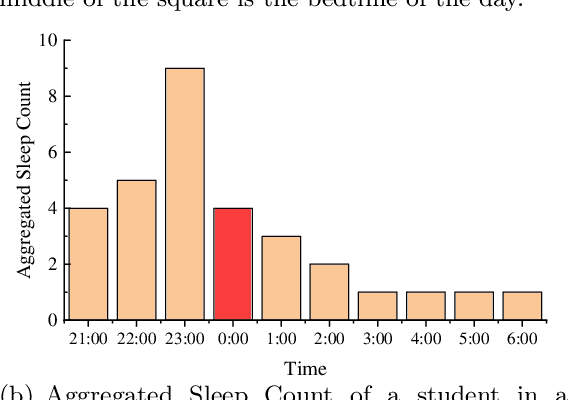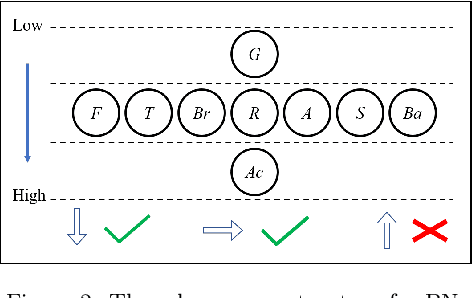Surf or sleep? Understanding the influence of bedtime patterns on campus
Paper and Code
Feb 18, 2022



Poor sleep habits may cause serious problems of mind and body, and it is a commonly observed issue for college students due to study workload as well as peer and social influence. Understanding its impact and identifying students with poor sleep habits matters a lot in educational management. Most of the current research is either based on self-reports and questionnaires, suffering from a small sample size and social desirability bias, or the methods used are not suitable for the education system. In this paper, we develop a general data-driven method for identifying students' sleep patterns according to their Internet access pattern stored in the education management system and explore its influence from various aspects. First, we design a Possion-based probabilistic mixture model to cluster students according to the distribution of bedtime and identify students who are used to staying up late. Second, we profile students from five aspects (including eight dimensions) based on campus-behavior data and build Bayesian networks to explore the relationship between behavioral characteristics and sleeping habits. Finally, we test the predictability of sleeping habits. This paper not only contributes to the understanding of student sleep from a cognitive and behavioral perspective but also presents a new approach that provides an effective framework for various educational institutions to detect the sleeping patterns of students.
 Add to Chrome
Add to Chrome Add to Firefox
Add to Firefox Add to Edge
Add to Edge